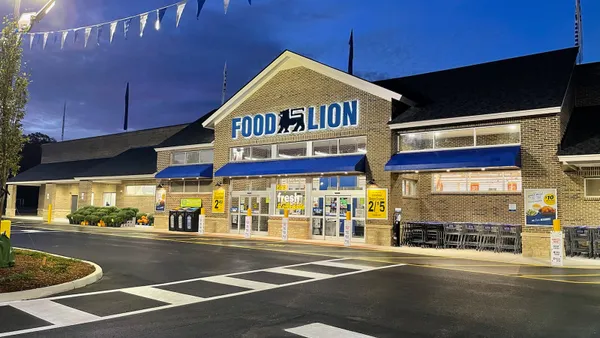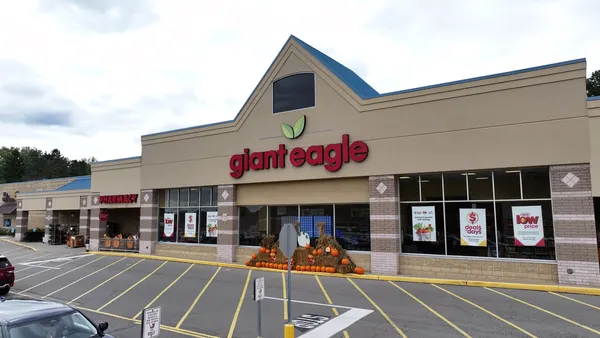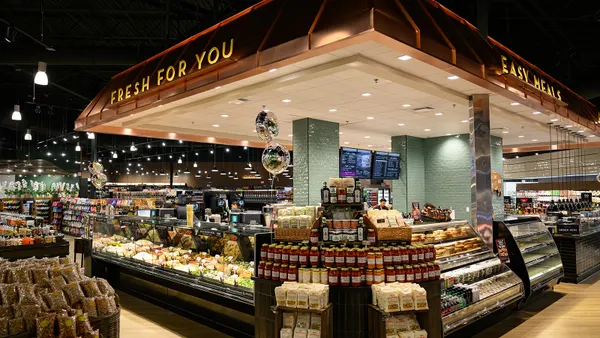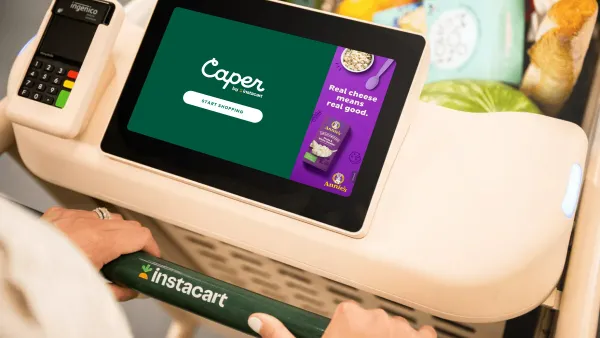Dive Brief:
- The ranks of supermarket dietitians have grown dramatically as consumer attitudes towards health have evolved and as retailers have realized the loyalty benefits that staffing these positions provide, according to The Washington Post. Since 2001, the "Supermarket-Retail" practice group of the Academy of Nutrition and Dietetics has ballooned from 14 members to 720 today.
- Most consumers (55%) see their grocery store as an ally in their wellness efforts — on par with health clubs, according to the Food Marketing Institutes's 2018 U.S. Grocery Shopper Trends report.
- In-store dietitians are providing a plethora of services from creating customized meals and meal kits to teaching classes, offering food demonstrations and providing community outreach.
Dive Insight:
Even as grocery retailers face thinning margins, they're continuing to add dietitians to the corporate payroll. These staffers can certainly help consumers navigate the nutritional complexities of the 50,000 or so products that appear in the typical grocery store. But are shoppers actually using their services, and are dietitians good for business?
A 2017 Food Marketing Institute report showed that 81% of supermarket wellness programs are considered a growth opportunity, while 69% of retailers say providing comprehensive health programs are their responsibility. For many retailers, dietitians not only design these platforms but are the public face appearing in marketing materials and in store aisles.
Nutritionists are serving in a variety of roles across the grocery spectrum. Some stores offer educational classes, cooking demonstrations, and even health screenings. Hy-Vee has been a pioneer in the use of in-store dietitians and has recently begun focusing on combating nutrition-influenced medical conditions like diabetes, hypertension and high cholesterol. Nutritionists lead customers on tours to help them make better choices for their conditions. Raley’s recently created a nutrition strategist role to help support the company’s wellness initiatives. Yvette Waters, the chain's corporate dietitian, develops customer education pieces and curates the stores’ products.
Other grocers are using technology to provide guidance for health-minded shoppers. Kroger recently launched the OptUp app, which ranks every item in their stores with a nutritional ranking based on an analysis of ingredients like protein, fiber, sugar and calories. The rankings are designed to help consumers limit the purchase of less healthy items while also using the data to help personalize offers and suggestions for every user. Other retailers have apps that help shoppers find recipes and the marketplace is full of technology designed to help people plan meals and meet their weight loss goals.
As personal health technology evolves, could apps like OptUp make dietitians irrelevant? This is a key questions retailers will have to assess. Apps and other innovations are cheaper overall, but the personal connection dietitians provide is something shoppers find valuable. An approach that integrates both approaches seems like the most feasible solution, particularly for grocers that currently staff dietitians.
With food being so central to health, grocery stores have a big opportunity to provide services that encourage shoppers to make healthier choices. Helping customers navigate the complicated business of food labels and educating them on nutrition will benefit businesses by increased consumer confidence in their purchasing choices and their stores. The dietitian's relationship with customers also gives brick-and-mortar stores an edge over online competition. By creating an interactive, health-focused community, customers are more likely to feel like they’re on their wellness journey together with their favorite grocery store.










